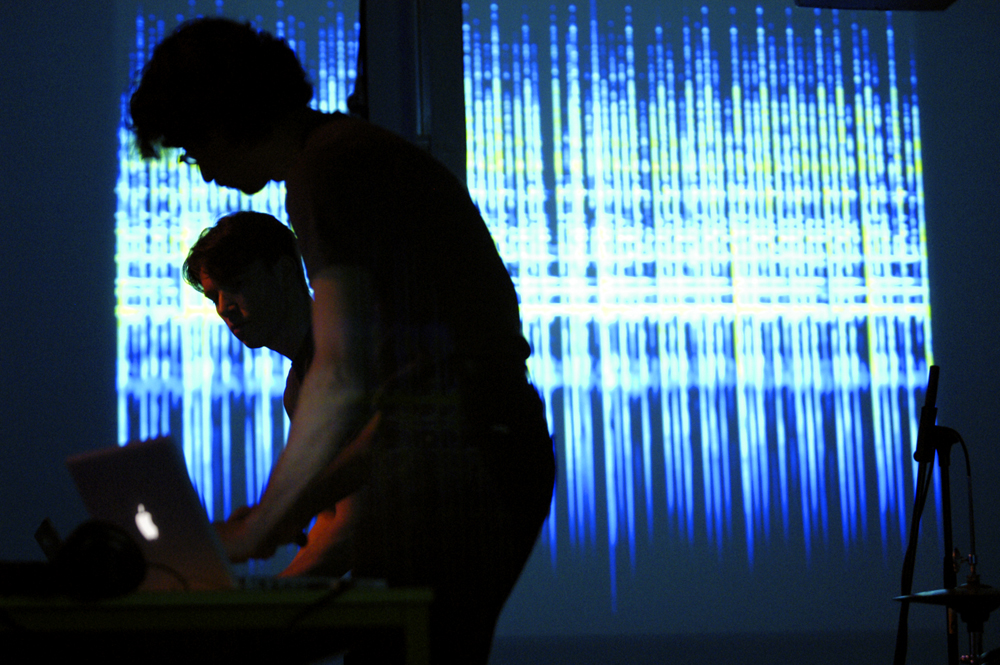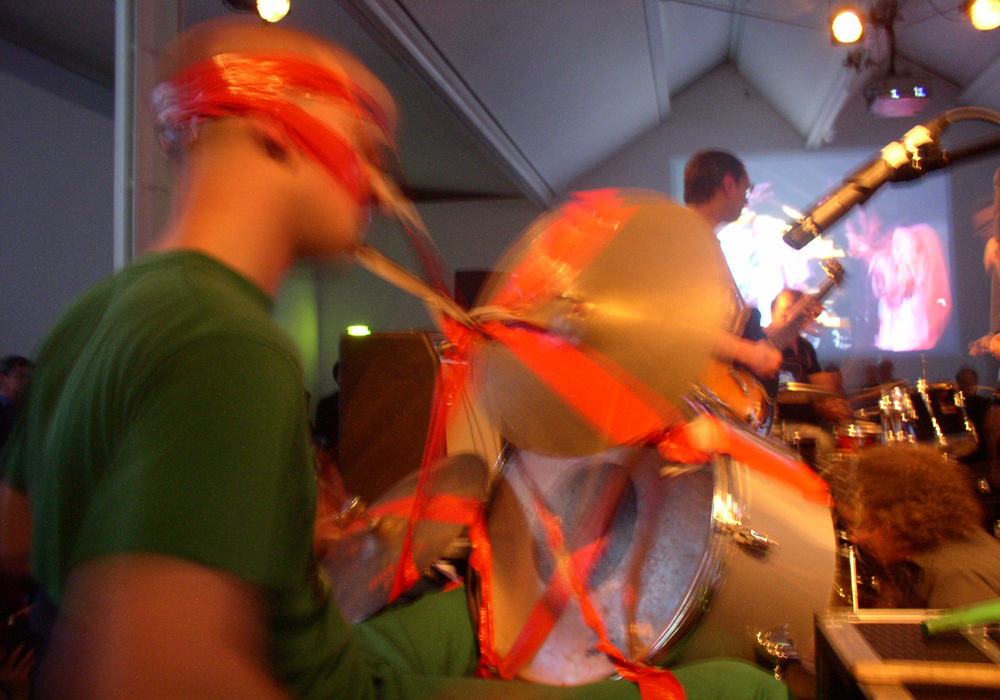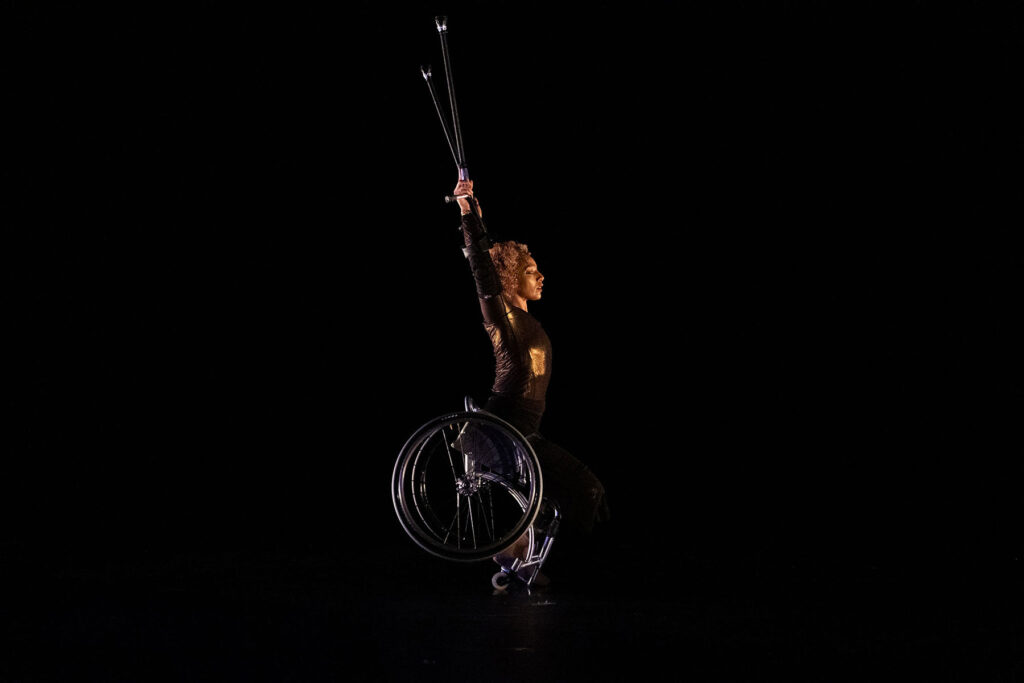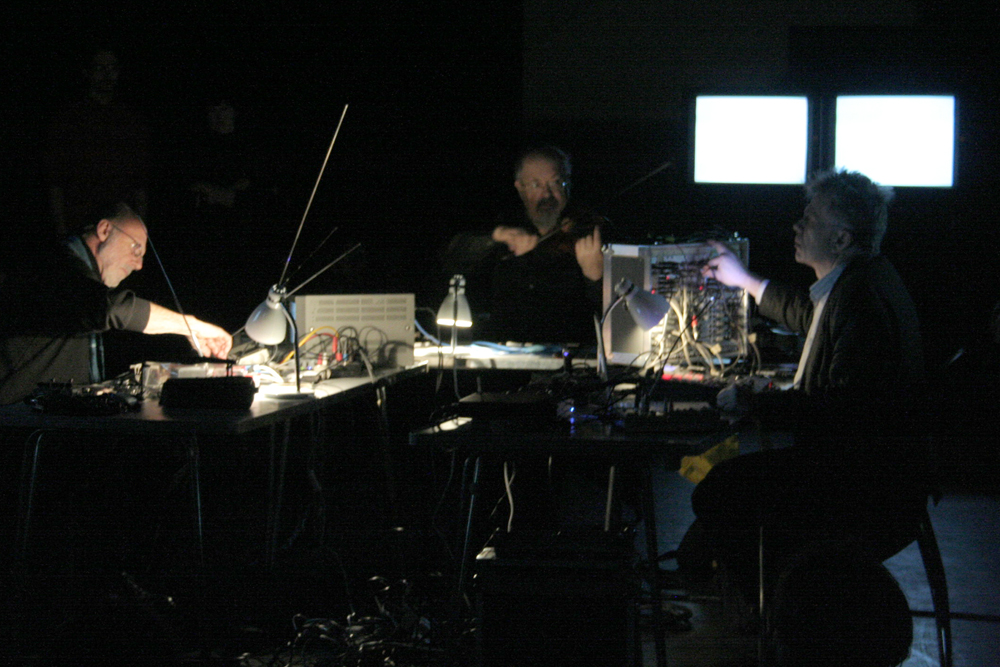
Silophone
[the user]
Live ISDN drone performance resonating between Dundee and an empty Montreal Grain Silo.
Arika have been creating events since 2001. The Archive is space to share the documentation of our work, over 600 events from the past 20 years. Browse the archive by event, artists and collections, explore using theme pairs, or use the index for a comprehensive overview.

Live ISDN drone performance resonating between Dundee and an empty Montreal Grain Silo.

First live show outside the USA featuring one-off film pieces and live theatre from the ringleaders of the ‘weird new America’ psych folk explosion.

In rethinking the body, the law, the state, gender, race, violence, care and empathy, how we might give humanness a different future?

An occasion for commotion, and a chorus of motions. Choreography rotating your revolutions and then some.

A double bill. A simple first person, Dundee-specific tracking shot that approaches the cinema/ screen/ space the film will eventually be shown in and in Brazilian opera house, a fixed camera gazes at a local audience from the stage: a choir, hidden in the orchestra pit, sings and gradually fades to silence.

An immersive environment where sound is looped through oscillators, radio, guitar pick-ups and video amps to create dense strobing images and colours

Tormented and drawn-out high-pitched yelps and drones, all interleaved with periods of torpid silence.

Ken Jacobs chats to Edwin Carels: Edwin is a curator based in Ghent, responsible for some fantastic programmes of experimental film and art at the Rotterdam Film festival (amongst others).

A programme of discontinuity between narration, text and image. Including Manual Saiz’s employment of John Malkovich’s Spanish dubbing double and Peter Rose’s absurdly hilarious concrete poetry subtitling chaos.

Goofily deformed, deeply thought vocal jams: like the sound of your own breath rushing through your head.

Paul Sharits’ Shutter Interface is a multi screen installation born of an intent to reveal the material substance of cinema in its purest form: spatially.

A conversation of intergenerational trans-resistance and anti-racist fierceness between two of the most inspiring public speakers we know.